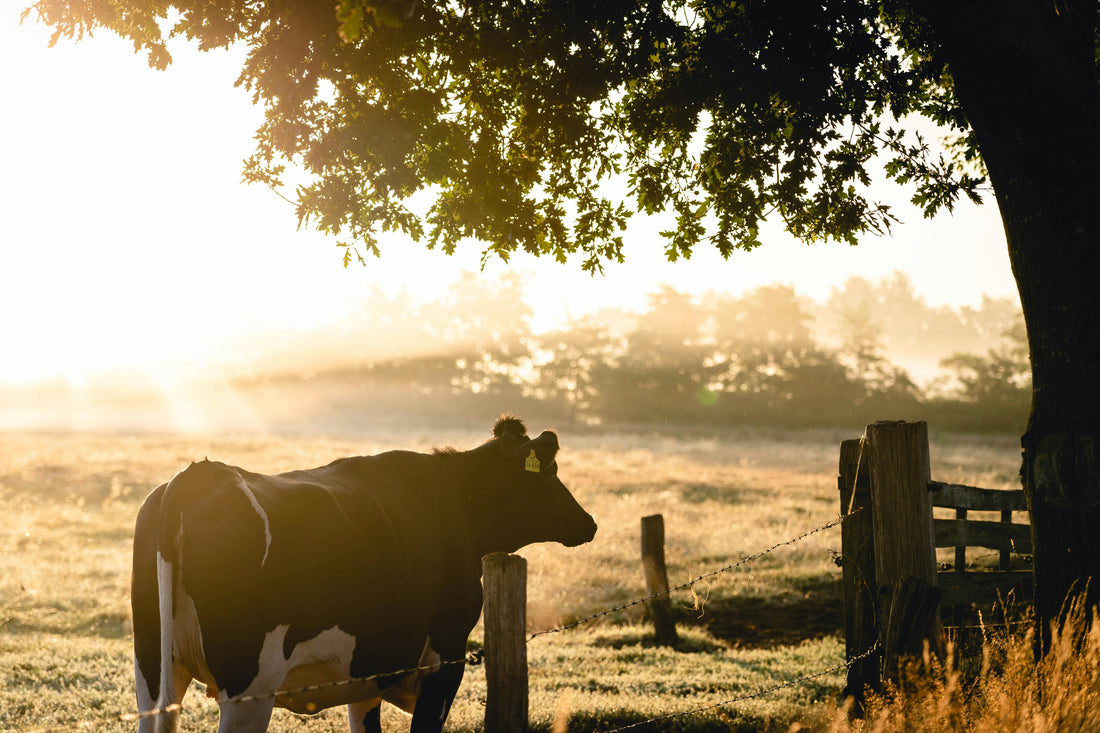
Why Regenerative Agriculture?
Why is our tallow sourced from farms practicing regenerative agriculture?
Since our shop started with a love for God’s creation and a desire to share it, we prioritize stewardship and care in the production of our raw materials. The more we’ve learned about regenerative agriculture, the more we’ve wanted to support farmers who are committed to these practices. So, what’s regenerative agriculture?
It’s a holistic approach to farming that seeks to restore and build up the land, rather than degrade it as many modern farming techniques do. For example, cows are usually grazed rotationally, moving to new pasture frequently. This allows the grass to re-grow and spreads out manure naturally. While many of the farms we source from are not USDA-certified organic (due to the burden/expense of the certification process), regenerative agriculture is better than organic. By utilizing these land-enhancing techniques, the need for chemical fertilizers and herbicides is eliminated. In addition, the cows are eating grasses that are healthy and nutrient dense, thanks to the quality of the soil.
Our suet comes from cows who have not received antibiotics or growth hormones to speed up growth. They have not received any mRNA vaccines and are not eating any GMO plants. In the cold Midwest winters, they eat stored pasture forages instead of grain or grain by-products.
We think all of this matters for two reasons. First, by sourcing our suet from local family farms who are creatively and holistically caring for the land, we are supporting stewardship and appreciation of creation. Second, happy, healthy cows make amazing tallow! Toxins and pollutants tend to be stored in fat, which is not exactly what we want to be putting on our skin. Instead, our tallow comes from cows grazing freely, not in a confinement lot, and eating what cows were designed to eat! This study discusses how pastured cows have higher levels of conjugated linoleic acid (CLA), which has been shown to have anti-aging effects on skin and anti-inflammatory properties. The same study also shows that a grass-fed diet produces more Omega-3 and less Omega-6 fatty acids, and that this diet elevates cancer fighting antioxidants.
We’re no regenerative agriculture experts, and haven’t raised any cows ourselves, but feel free to ask us any questions. If we don’t know, we’ll ask our farmer friends!
